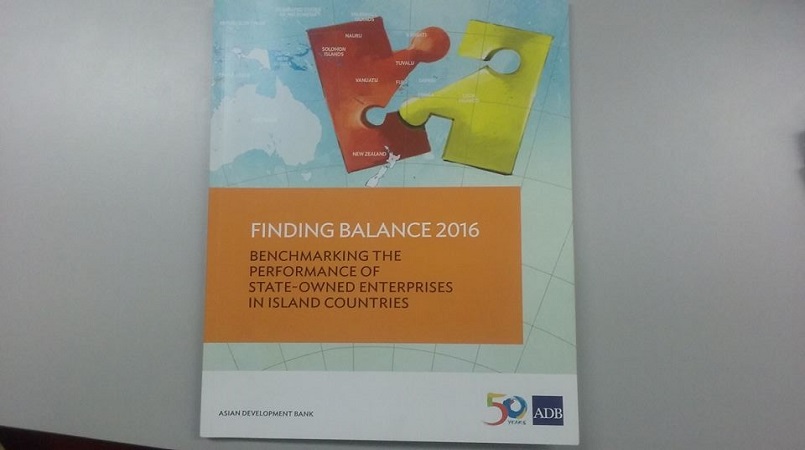
Privatisation of State Owned Enterprises (SOE) removes political influence, which is good for business, says expert Christopher Russel.
Russel, who is a SOE expert with the Asian Development Bank’s Pacific Private Sector Development Initiative (PSDI), made the comment this morning. This was during the launching in Port Moresby of the Finding Balance 2016 Report: Benchmarking the Performance of State-owned Enterprises in Island Countries.
The Report compares the financial performance of SOEs in Fiji, Kiribati, Marshall Islands, Papua New Guinea (PNG), Samoa, Solomon Islands, Tonga and Vanuatu, as well as Jamaica and Mauritius.
Russel said the SOE model is not sustainable because of political and commercial risks.
“Involvement of politicians undermines business interests and politicians struggle to make commercial decisions.
“Private sector participation is needed for commercial gain.”
Russel said State owning and controlling businesses can lead to nepotism in the appointment of board directors. But directors’ duties, under the Companies Act, can be a guide for SOE directors.
The report finds that SOE portfolios in the eight Pacific countries examined, contributed only 1.8 to 12 percent to gross domestic product despite very large asset bases, ongoing government cash transfers and monopoly market positions.
It also finds productivity levels of the SOEs analysed tended to be well below developed country benchmarks.
The Report nonetheless finds many countries have made significant progress through commercially-oriented reforms.
“Although improvements in SOE performance have been achieved in many countries, sustaining them has proven difficult,” said Laure Darcy, SOE Expert with ADB’s PSDI, which produced the report.
“Committing to a reform agenda that increases private sector participation in SOEs and service delivery is the most effective way to lock in gains.”
The Report finds that between 2010 and 2014, PNG’s SOE portfolio produced an average return on assets of 1.3 percent and an average return on equity of 2.4 percent. This was down from 4 percent and 7 percent respectively, between 2002 and 2009.
PNG Ports, PNG Power and Air Niugini delivered a net profit of K510 million during this time, while Telikom PNG accumulated net losses of K129 million.
